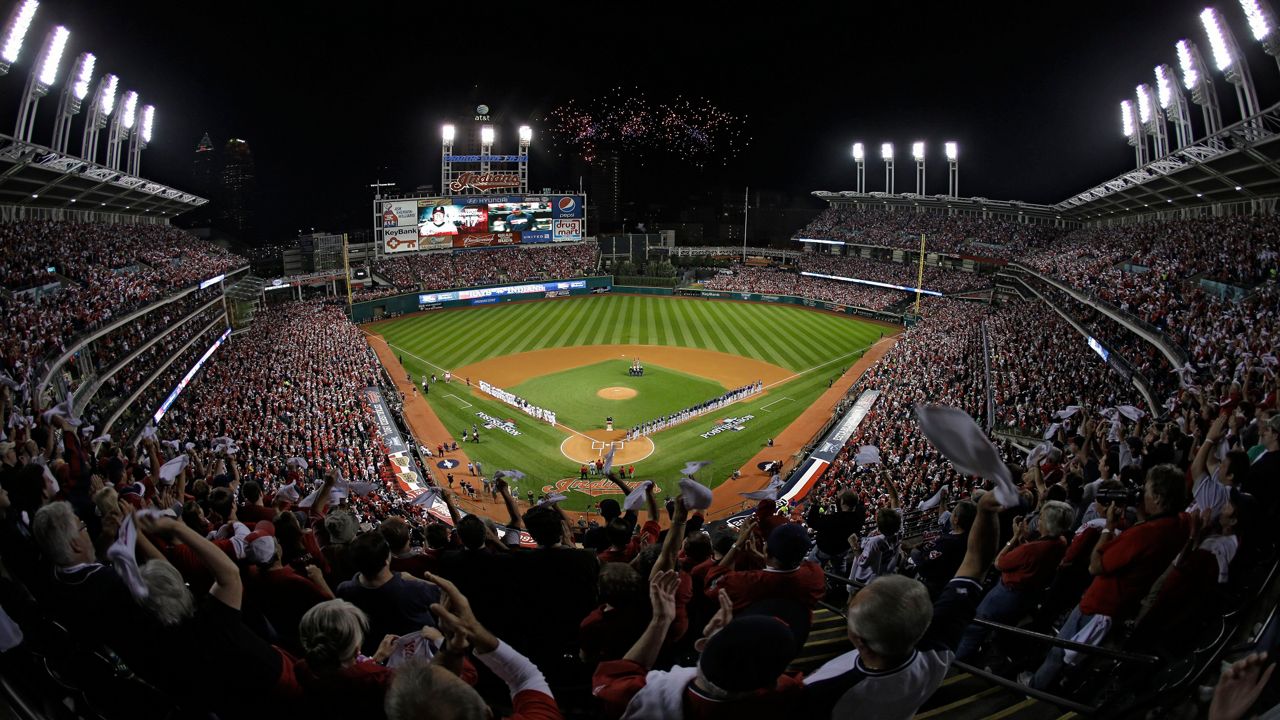CLEVELAND — With the city of Cleveland expected to contribute close to $8 million annually to keep the Indians at Progressive Field through 2036, the issue of publicly financing a stadium renovation could become a hot-button issue in this fall’s mayoral election.
On Thursday, Indians owner Paul Dolan joined city, county and state leaders to announce an agreement that would keep the club at Progressive Field for 15 years. The plan would call for renovations to the stadium in exchange for nearly $19 million per year in public financing.
The deal would need approval from city, county and state legislators before becoming official. While officials stress the plan will not increase taxes by using existing revenue sources, the agreement could potentially take money that could be used elsewhere in the city.
Current government leaders said the plan to use a mixture of public and private dollars to renovate Progressive Field are necessary in order to keep the club in Cleveland. Thursday’s agreement had the backing of Gov. Mike DeWine, County Executive Armond Budish and Mayor Frank Jackson. Jackson is leaving office at the end of the year and is not running for a fifth mayoral term.
Spectrum News 1 asked the seven candidates running for mayor of Cleveland for their opinion on the plan. As of Friday afternoon, five of the seven mayoral candidates issued responses to the stadium plan.
While several of the candidates indicated their support for the team, they were not quite ready to endorse Thursday’s agreement.
The campaigns of State Sen. Sandra Williams and Cleveland Councilman Basheer Jones have not yet responded.
Kevin Kelley, who currently serves as Cleveland City Council president, and Jones could get a say in the proposal as council members.
“We need to keep Progressive Field the best ballpark in the major leagues and keep our team in Cleveland. And, while I’m familiar with the parameters of the proposed agreement, we need to make sure it goes through the full City Council vetting process,” Kelley in a statement.
Attorney Ross DiBello, one of two candidates who has not served in public office, did not offer support behind the plan.
“This most recent handout of our taxes is another example of a broken system of elected politician control and unrepresentative government resulting from a certain type of influenced and manipulated consent,” he said. “It directly corresponds to our rank as No. 1 in the nation in poverty and rising crime. The budget should be looked at as a moral document. Our fiscal priorities should mirror our humanitarian priorities. We should have participatory budgeting. Most of my neighbors and I want our taxes back.”
Justin Bibb, who like DiBello, has not served in elected office, called on the city to be fair in it’s spending. He said because Cleveland would contribute $117 million to the stadium project over the next 15 years, the city should use $117 million in American Rescue Plan dollars and invest in public safety improvements and strengthening Cleveland’s neighborhoods.
"Sports teams are important for the city but let’s be fair to the people in Cleveland neighborhoods,” he said. “What’s fair is fair; 385,000 Clevelanders deserve at least the same investment as the team owners, players and fans and the right to comment publicly on this issue. This is the way we should do business going forward – always putting Cleveland people’s safety, neighborhoods, health, and job opportunities first. And because we have half a billion in federal dollars to spend, we can do it right now, with the right leadership. What a difference it could make — our people’s safety and neighborhoods can’t wait."
Zack Reed, a former member of Cleveland City Council, was also not ready to offer his full support yet.
“Regarding the agreement to renovate Progressive Field, I think public/private partnership is the way to go. But, before I endorse any proposal involving taxpayer dollars, I need to know how this effects [sic] the residents I serve,” he wrote. “That is my litmus test.”
Former Mayor and Rep. Dennis Kucinich said he was not ready to weigh in.
“We love our baseball team, but we can't really comment on the proposed lease agreement until we actually read the proposed lease agreement,” he said.
On Sept. 14, an open primary will whittle the field of seven down to two candidates. The final two candidates will participate in the Nov. 2 general election.
The registration deadline for the September primary is Aug. 16. Early voting begins the next day.



